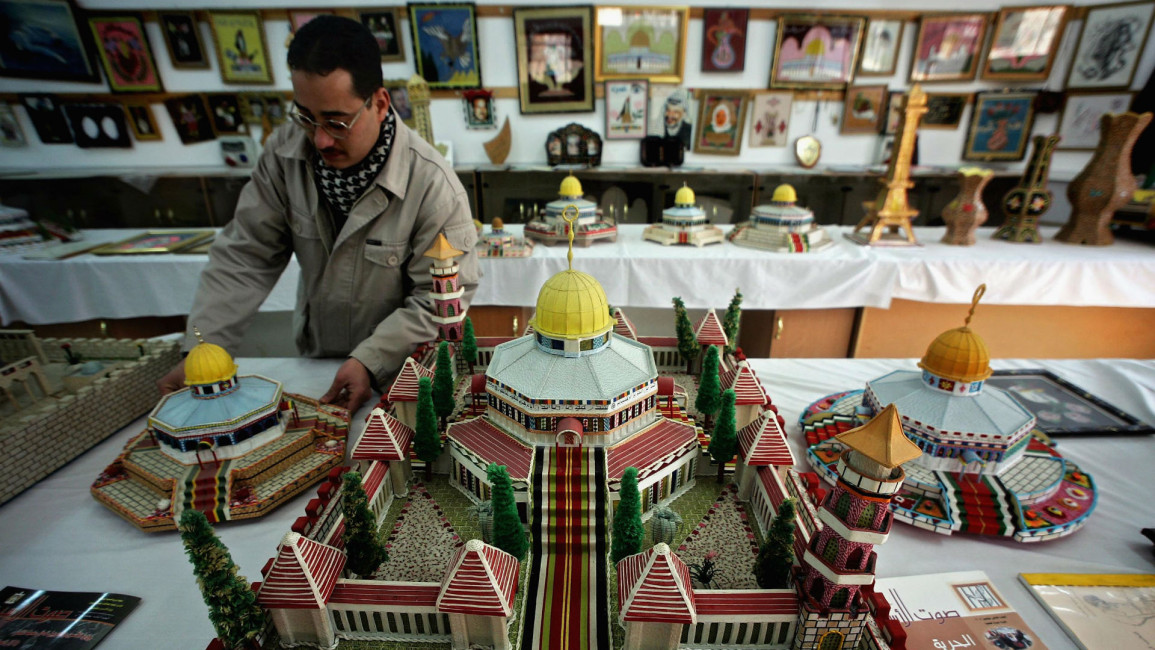
The ghost of Palestine past
With Egypt's Rafah border crossing almost permanently closed, Erez has become the only portal into Gaza for the few vistors that Israel allows in.
A few days ago I was there, to greet an English doctor who was visiting Gaza.
When entering the Palestinian side, he had to get his papers stamped twice - once by the representatives of the Palestinian Authority, and again by the Gaza police.
But, when I held his passport I noticed something peculiar: the Israelis had pasted a sheet of paper on the passport with the exit stamp.
No recognition
This small piece of paper was a way of denying the Palestinian territory an iota of recognition from Israel.
To them the man was leaving "Israel" and entering a vague entity. They call it the Palestinian "territories", but if they call it the Palestinian "reservations" then it wouldn't make much difference.
Every year in May, Palestinians commemorate the Nakba and the creation of the state of Israel. Palestinian leaders indulge in discussions, even spats, on the path they imagine will achieve a Palestinian state.
For 67 years, Palestinian leaders have failed to identify a national agenda, or how their goals could be achieved.
At first, we dreamed of liberating all of Palestine. Then we aimed for a portion of Palestine to establish a state and move to liberate what else of the land remained. Finally, we settled just for the lands occupied from 1967.
It is worth noting that the people never followed their leadership on this downward spiral.
| We have arrived at a point where we have the shell of a ghost state, and the liabilities of a real one. |
Even after four generations living as refugees, we still long for the day to return to Palestine, no matter where the original towns are now.
Sixty-seven years later, we have arrived at a point where we have the shell of a ghost state, and all the liabilities of a real one.
Ghost state
We now have governments, ministers, a sophisticated security apparatus. We collect taxes and we spend them. We quarrel over power and we fail to share it. But we lack the most essential requirement of a state: sovereignty.
Palestinians seem to have adopted an order of priorities which no successful revolution has followed.
As a result, we have ended up with a lot we fear losing, but with no real gains to show.
The path of armed resistance is refused by some Palestinian leaders due to a fear of what Israeli retaliation might do to "Palestinian institutions".
Even when popular resistance is praised by the PA, in reality it is discouraged, and sometimes suppressed. The same logic justifies the PA's past reluctance to join the International Criminal Court.
We now have a power station in Gaza, but we don’t have power. We spend half a billion dollars annually on health referrals from Gaza and the West Bank, but our health services are collapsing.
These are still praised by the old guard as accomplishments extracted from the occupation. But without sovereignty what are these "accomplishments" other than to provide the occupation relief from responsibility.
Palestinians rejoiced when the Palestine Liberation Organisation declared an independent state in 1988 on the lands of 1967. Then six years later at Oslo it conceded to much less than that.
When negotiations proved to be at a dead-end, we pitched for statehood at the UN Sescurity Council and, when that failed, at the UN a year later.
After a series of confused, seemingly desperate moves, a Palestinian state is still illusive.
Even resistance groups such as Hamas have found themselves entangled in this unholy equation.
Hamas won general elections and promised to reform the PA's faulty body. But it found itself trapped having to provide salaries or work for Palestinians under occupation and resisting the combined Israeli and international extortion to turn their back on armed resistance.
Willingly or not, Hamas appear to have fallen into the same trap.
After 67 years of exile, is all we Palestinians deserve is a ghost state, and more importantly, is it all we could achieve?
It seems that some long, deep, and hard self-criticism is what is really needed.
Opinions expressed in this article remain those of the author and do not necessarily reflect those of al-Araby al-Jadeed, its editorial board or staff.




